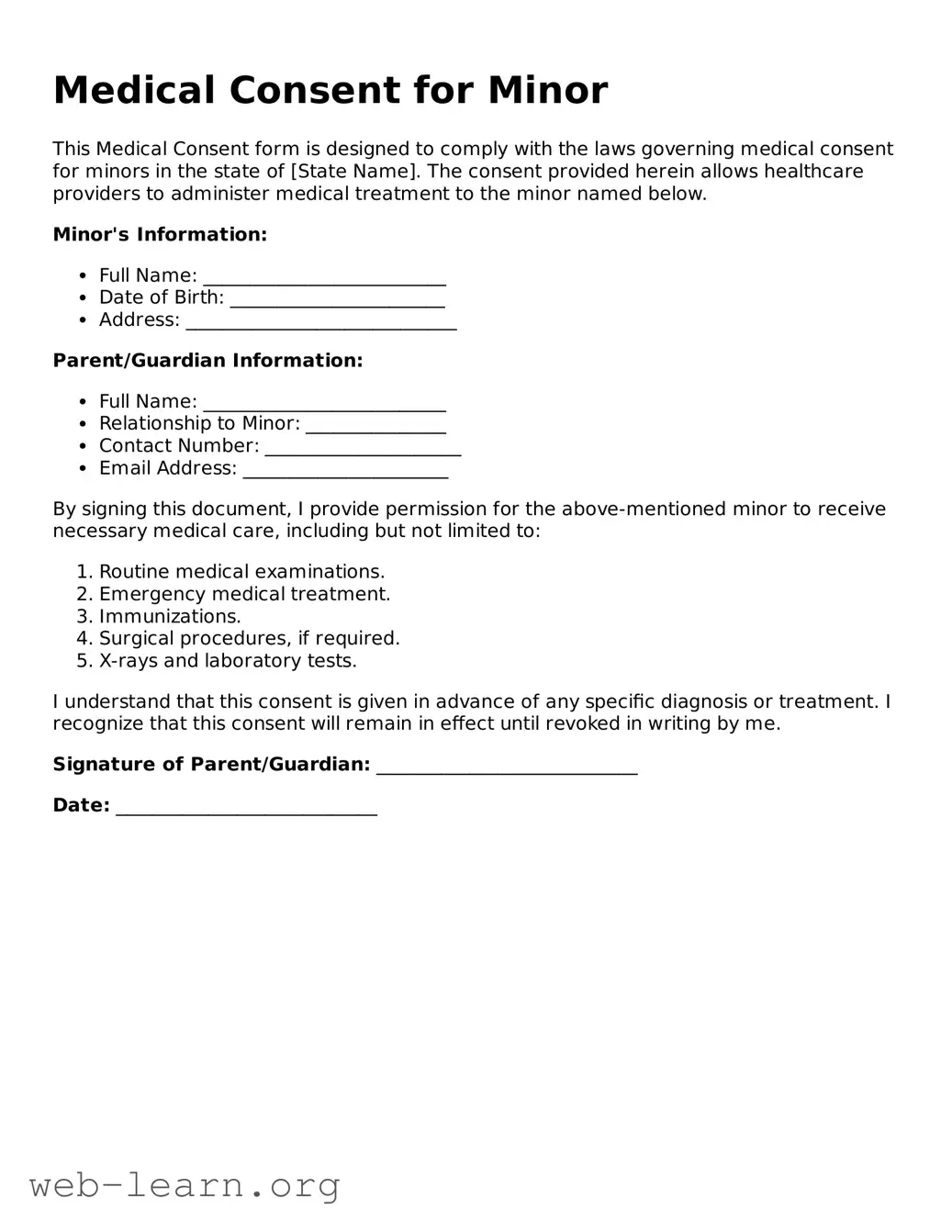Medical Consent for Minor
This Medical Consent form is designed to comply with the laws governing medical consent for minors in the state of [State Name]. The consent provided herein allows healthcare providers to administer medical treatment to the minor named below.
Minor's Information:
- Full Name: __________________________
- Date of Birth: _______________________
- Address: _____________________________
Parent/Guardian Information:
- Full Name: __________________________
- Relationship to Minor: _______________
- Contact Number: _____________________
- Email Address: ______________________
By signing this document, I provide permission for the above-mentioned minor to receive necessary medical care, including but not limited to:
- Routine medical examinations.
- Emergency medical treatment.
- Immunizations.
- Surgical procedures, if required.
- X-rays and laboratory tests.
I understand that this consent is given in advance of any specific diagnosis or treatment. I recognize that this consent will remain in effect until revoked in writing by me.
Signature of Parent/Guardian: ____________________________
Date: ____________________________
